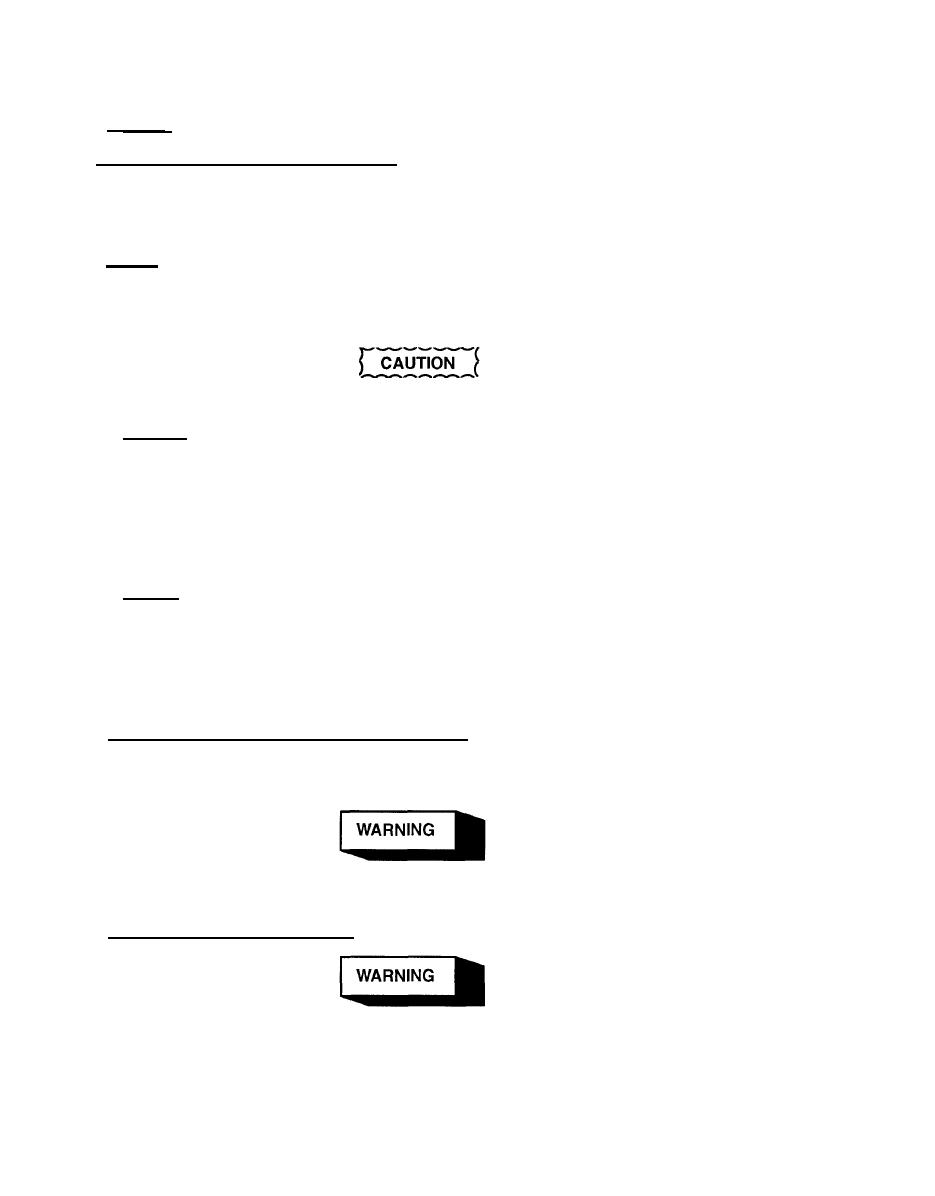
TM 9-4120-378-14
2.12.3 Cleaning. Clean outside grilles, coils, filters, and mist eliminator more frequently.
2.13 OPERATION IN DUSTY OR SANDY AREAS.
NOTE
Unit Preventive Maintenance Checks and Services (PMCS) should be performed
at daily intervals.
2.13.1 General. Dusty and sandy conditions can seriously reduce the efficiency of the air conditioner by clogging
the air filter, mist eliminator, and coils. This will cause a restriction in volume of airflow. Accumulation of dust or sand
in the condenser coil and/or in the compressor compartment may cause overheating of the refrigeration system. Dust
or sand may also clog the condensate trap and water drain lines.
Never operate the air conditioner without having the air filters in place.
2.13.2
Protection.
a.
Shield the air conditioner from dust as much as possible.
Take advantage of any natural barriers which offer protection.
b.
Limit the amount of dusty or sandy outside air introduced through the fresh air damper.
c.
Roll down and secure the fabric cover on the back of the cabinet during periods of shutdown.
d.
2.13.3
Cleaning.
a.
Keep the air conditioner as clean as possible.
b.
Pay particular attention to the outside grilles, condenser, filters, mist eliminator, louvers, and electrical compo-
nents.
In extreme conditions, daily cleaning of condenser, filters, and outside grilles maybe necessary.
c.
2.14 OPERATION UNDER RAINY OR HUMID CONDITIONS. Take special precautions to keep equipment dry.
If installed outdoors, cover the equipment with a waterproof cover when it is not in use. Remove cover during dry peri-
ods. Take all necessary precautions to keep the electrical components free from moisture. Keep vent damper actuator
closed during heavy rain.
Make sure power is disconnected from air conditioner before touching any wiring
or other electrical parts.
OPERATION IN SALT WATER AREAS.
2.15
Disconnect power source prior to washing the air conditioner,

